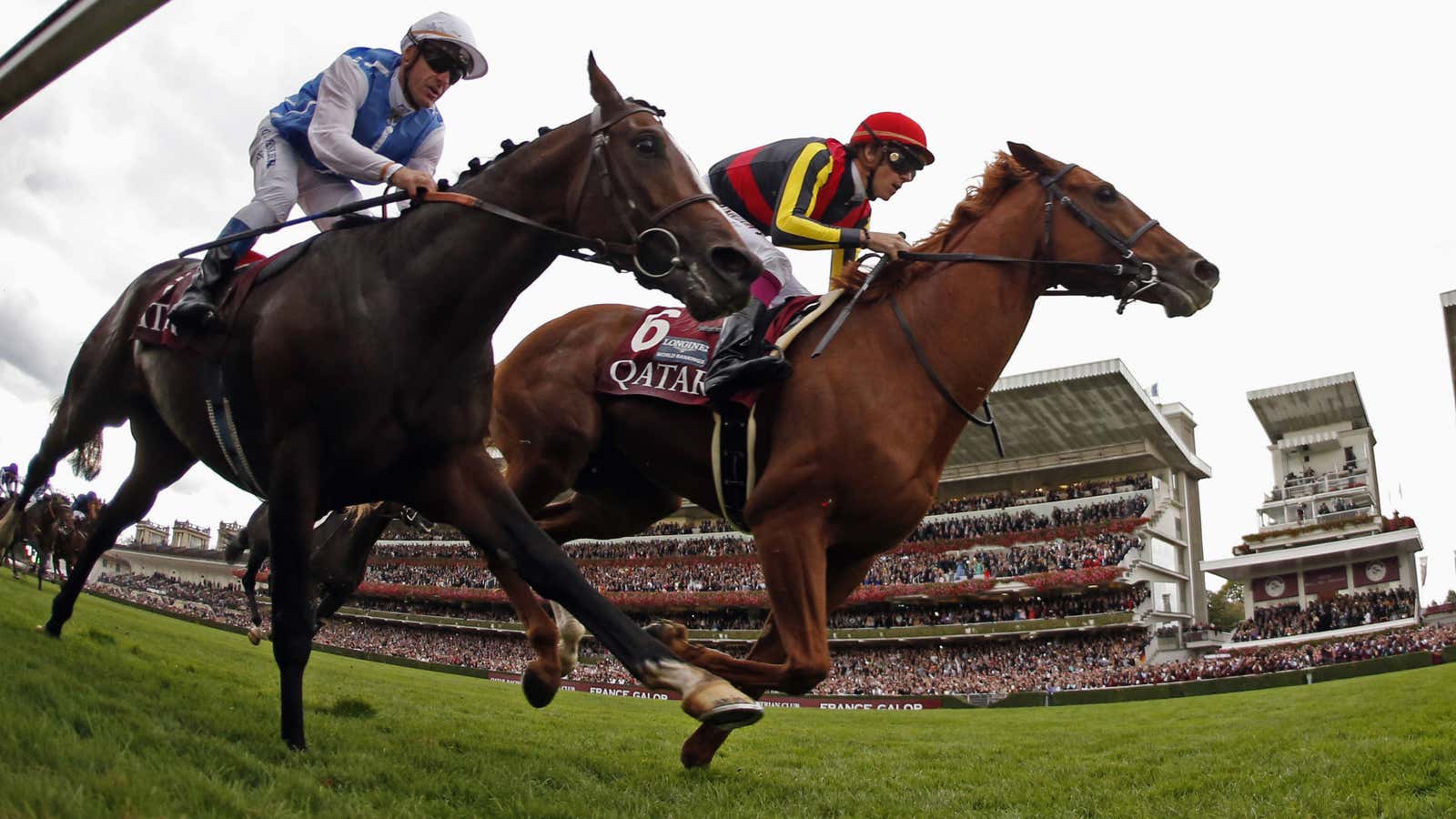It’s illegal to burn down one’s home for insurance money. However, the same principle does not always hold true in business. In fact, forcing a company to default may just make sense for its investors in the topsy-turvy world of derivatives. That’s how GSO Capital Partners—an asset manager owned by Blackstone—just scored a big win: at least €11.4 million ($15.6 million), according to a Bloomberg report.
In the first half of the year, GSO bought up debts issued by Codere, a Spanish gaming and racetrack company that’s been flirting with bankruptcy. The company has posted six straight quarters of losses, and it owes about $1 billion in debt. GSO also purchased insurance on those bonds in the form of credit default swaps (CDS), an unnamed source told Bloomberg. CDS pay out when a company experiences a “credit event”—essentially some kind of default on the terms of its debt. GSO apparently thought it could profit from fluctuations between the prices of the bonds issued by the company and the cost of its insurance—a fairly standard play in the markets.
But it seems GSO then recognized an even more lucrative opportunity. In June, GSO and Canyon Partners LLC, a Los Angeles-based hedge fund, took over what Codere said was a €100 million revolving loan from banks like Barclays and Credit Suisse.
GSO and Canyon then added an extra condition to the loan. It said that Codere would have to repay the loan ahead of time if it also paid on time a $300 million interest payment on its bonds, due on August 15 (with a 30-day grace period). This gave Codere an incentive to make the interest payment late. It did so, triggering a “credit event”, which meant that the CDS—the default insurance—paid out. GSO’s share of that payout was an estimated €11.4-13.7 million.
In short, GSO used the loan to push Codere into defaulting on its bonds, so they could pick up the insurance.
There aren’t any clear losers in this clever game. Many of Codere’s other bondholders had purchased CDS to protect themselves from a possible default, and so although they got their interest payment late, they also got a CDS payout—in fact, that may have even made negotiations over debt restructuring go more smoothly.
Nor is it such a bad deal for Codere. Although the company is likely to pay higher interest rates to borrow in the future, it got ready cash in the form of the loan from GSO and Canyon.
And, of course, GSO, besides its CDS windfall, will probably also make interest on the loans, and get paid back for the bonds it bought, likely already trading pretty cheaply.
But such a scheme clearly distorts tried-and-true business axioms that suggest “full faith and credit” actually matter. “This is totally irrational from the perspective of an investor who loans money to a company, buys the bonds or loans, and expects to get paid back,” Bonnie Baha, the head of global developed credit at Los Angeles-based DoubleLine Capital, told Bloomberg.
Read Bloomberg’s full report here.
Correction (10/24/13): A previous version of this article incorrectly stated that Canyon Partners shared in the €11.4-13.7 million payout GSO received. The article has been amended to reflect that it did not.




